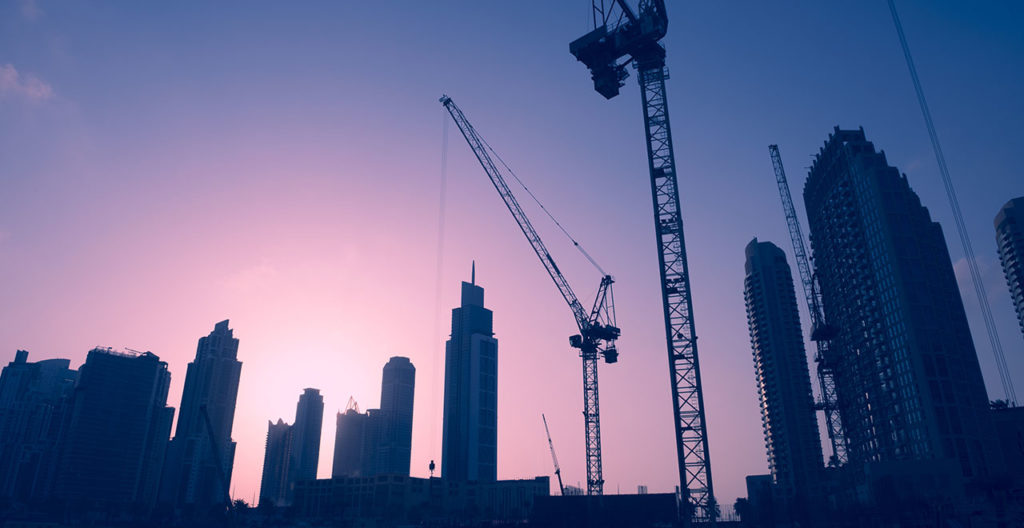Today’s hottest real estate trend is buying a condo during its Pre-Construction phase.
You may ask yourself, “Should I buy a pre-construction condo in Toronto?” For individuals considering this type of investment, there are a few things to know before signing on the dotted line.
1. Find Out The Deposit Structure
As an industry standard, pre-construction condos typically require a 20 percent down payment to purchase a property. The deposit structure is provided by the vendor and it will inform you of the timing of the deposits. For example, are you depositing 20% in the first year after contract signing or is it spread out over 2 or more years?
When buying pre-construction, the lucrative advantage of a 20 percent down payment is the power of leverage. For instance, if you were to purchase a $650,000 property with a 20% down payment, as construction of the condo commences, assume the average rate of real estate continues to climb by 5% per year. By completion in 4 years, your condo is now valued at $790,080. That’s a $140,000 equity head start (which you can capitalize on if you have an assignment clause, see below) and your return on investment is approximately 108%! Leverage allows you to magnify your return before you even move in.
2. Take Advantage of the 10-Days Cooling Off Clause
In Ontario, every pre-construction condo purchaser has 10 calendar days to reconsider and withdraw their purchase. During the 10-day cooling off period, also known as the “rescission period”, it is advised that you have an experienced lawyer review your purchase and sale agreement. This is also a good time to get a mortgage approval. You may have up to 30 days after contract signing to provide the vendor with your mortgage approval, but if you are unable to secure a lender, and you have surpassed the 10-day cooling off period, you may be unable to get your deposit back.

3. Work With An Experienced Specialized Lawyer
From negotiating closing costs to reviewing your purchase and sale agreement and possibly suggesting amendments, a lawyer with pre-construction condo experience will help you understand the fine print. A pre-construction condo contract, including all the amendments and condo documents can be hundreds of pages long. Know your rights and obligations completely and in simple words by discussing this with a specialist in the field.
4. Have An Assignment Clause In Your Contract
Having an assignment clause is a great feature as it allows you to sell your contract to another buyer before occupancy. This clause is especially important to investors seeking an ROI, sooner rather than later. It is advised that you speak with a pre-construction lawyer as there is usually some fine print that may limit your ability or means to sell your condo to another buyer.
5. Expect Construction Delays
Building completion approximations are just that, approximations. Developers may suffer delays due to unexpected schedule changes like, harsh weather, trade-related shortages and strikes. Delays can happen to the most reputable builder, and unfortunately, this is not something you can predict. Construction deadlines are outlined in the Tarion addendum in your purchase and sales agreement but plan for at least 3-6 months in delays.

6. Material Changes May Occur
Embedded in your sales agreement are details about ‘Material Changes’. These changes could very well be the relocation of the Penthouse Sports Club to the second floor of the building or an increase in storeys. Your purchase price won’t be affected but the completion expectancy date may change.
7. Condo Fees Will Increase
Condo fees, also known as ‘maintenance fees’ are estimated several years in advance. The vendor can never be sure how much it will cost to run a building prior to construction. Consider the fee advertised as an approximation as the cost will change with the inflation rate among other things. Low condo fees can be enticing when comparing condo projects to one another, but prepare for fees to increase somewhat as the years go by.
8. Prepare For The Interim Occupancy Period
You may have received the keys and taken occupancy, but you are not yet the owner of the suite. Until the building registers and passes all required inspections, you are obliged to make monthly payments to cover the builder’s mortgage, property taxes and utilities. The registration period typically takes 6-9 months and can be inconvenient for most, but it is worth the wait to get the health and safety stamp of approval.
9. Prepare For Closing Costs
Closing costs may include:
-Land Transfer Taxes
-Development Levies (these can be capped, speak with a CondoNow agent for more info)
-Education Fees
-Utility Connection Fees
-HST On Appliances
-Reserve Fund Contribution
-Park levies
These costs can add approximately 1.5 to 4% to your purchase price.
10. Taxes are Rebatable
Condo prices quoted by vendors include the HST New Housing Rebate. This means that, if you are moving into your new condo, there is no HST to pay. Conversely, if the vendor deduces that you are investing with the intent to rent the property, the HST rebate is removed.
We strongly advise that you speak to an accountant well-versed in pre-construction condos.
When it comes to purchasing a pre-construction condo, making the most informed decision can be challenging. Our Condonow Comparison Tool allows you to view and compare projects based on some of the most essential elements:
Price Per Sqft.
Floor Plans
Maintenance Fees
Amenities
And Much More…
 StoryLine By CondoNow
StoryLine By CondoNow





One comment
Pingback: 10 Tips For Investing in Toronto Pre-Construction Condos – ShantaéCNews